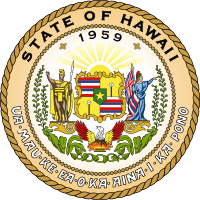Originally enacted in 1974, the Hawaii PHC Act was the first in the nation to set minimum standards of health care benefits for workers. Employers, excluding Federal, State and City government and other categories specifically excluded by the law (sections 393-3, 393-5 and 393-6) are required to provide Hawaii employees, who suffer a disability due to non-work related illness or injury, with adequate medical coverage for non-work related illness or injury, protecting them from the high cost of medical and hospital care.
Employers must provide health care coverage to employees who work at least twenty (20) hours per week and earn 86.67 times the current Hawaii minimum wage a month (see the Maximum Weekly Wage Base and Maximum Weekly Benefit Amount). Coverage commences after four (4) consecutive weeks of employment or the earliest time thereafter at which coverage can be provided by the health care plan contractor, which is usually the first of the month.
Employers can choose one of the following three ways to provide the mandated coverage to their employees.
- Purchase an approved plan. In Hawaii, insurance companies, mutual benefit societies and health maintenance organizations can sell health care plans to Hawaii employers directly. These plans must be reviewed by the PHC Advisory Council and approved by the Director of the Department of Labor and Industrial Relations (DLIR) before they can be marketed to employers.
- Purchase an insured plan of employers’ choice. Some employers with corporate officers located outside of Hawaii purchase a health care plan and offer such plan to their employees on a nationwide basis. Employers that choose this option must submit their plan to DLIR for review by the PHC Advisory Council and approval by the Director to ensure the benefits are comparable to plans sold in Hawaii.
- Provide a health care plan that is funded by the employer. As a self-insurer, the employer must show proof of financial solvency and ability to pay benefits by furnishing DLIR with the latest audited financial statements for review. Following the initial approval, the audited financial statements must be filed annually for continued approval. Employers choosing this option must complete an application for self-insurance (Form HC-61) as well as submit a copy of their health care plan to DLIR for review by the PHC Advisory Council and approval by the Director to ensure the benefits are comparable to plans sold in Hawaii.
All health care plans, whether sold by health care contractors or submitted by employers, must be approved by DLIR as meeting the prescribed minimum standards. Such determination is made by the Director under the advisement of a seven-member PHC Advisory Council consisting of representatives from the medical and public health care professions, from consumer interests, and from the prepaid health care protection industry. Upon approval, plans are designated as a 7(a) or 7(b) plan. Plans designated as 7(a) are equal to or better than the benefits offered by the plan with the largest number of subscribers (also known as the prevalent plan) in the State of Hawaii. (See the summary of benefits offered by the PPO and HMO prevalent plans.) Plans designated as 7(b) provide for sound basic hospital, surgical, medical, and other health care benefits; however, plan’s benefits, such as, the deductible, out of pocket limit, lifetime maximum benefit, benefit level and copayments, may be more limited than the benefits provided by plans qualifying as 7(a). Plans qualifying as 7(b) require the employer to pay one-half of the cost for dependents’ coverage.
Employers may elect to pay the entire monthly premium or share the cost with their employees. Employers must pay at least 50% of the premium cost, but the employees’ share cannot exceed the lesser of 50% of the premium cost or 1.5% of the employees’ monthly gross earnings. Cost sharing for dependents is determined by plan type. If employers purchase an approved plan, the health care contractor is responsible for informing the employers whether they are responsible for contributing toward dependents’ coverage. If employers submit a plan for approval, DLIR is responsible for informing the employers of their plan approval designation and whether they are responsible for contributing toward dependents’ coverage.
There are situations where employees can waive the mandated coverage. These include being covered by a federally established health insurance, such as, Medicare and Medicaid, covered as a dependent under a qualified plan, recipient of public assistance and covered by state-legislated health plan, covered under their own personal health insurance policy or a follower of a religious group who depends for healing upon prayer or other spiritual means. Employees are required to complete “Employee Notification to Employer” (Form HC-5) every calendar year to validate the exemption so that employers are relieved of the responsibility for providing the mandated health care coverage.
Unless specifically excluded under the law or a Notice to Employer to waive coverage is filed with the employers, all employees who meet the eligibility requirements are entitled to health care coverage through employer-based group policies. Complaints (Form DC-54) related to non-coverage by employers can be filed with the Investigation Section in Honolulu or on the neighbor-island, the Department of Labor and Industrial Relations District Office nearest the complainant for assistance. Complaints related to benefits of the plan are usually filed directly with the health care contractors who are regulated by the Department of Commerce and Consumer Affairs, Insurance Division.
For more information please see the Highlights of the Prepaid Health Care Law and Frequently Asked Questions.

